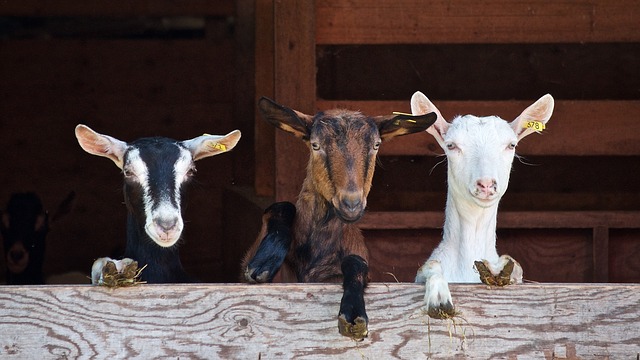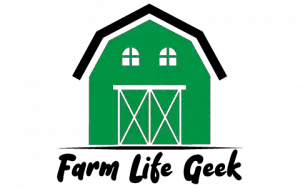There are a lot of reasons to fence in your goats. Not only does it keep them from wandering off, but it also protects your crops from being eaten or destroyed. Goats are incredibly curious creatures and they will get into anything and everything if given the chance-including your prized gardens and plants. A good goat fence will prevent them from getting anywhere near your valuable crops.
What is goat fencing and how does it work?
Goat fencing is a type of fence that is specifically designed to keep goats contained. Unlike other types of fences, goat fencing has much smaller gaps between the slats or wire mesh. This prevents goats from being able to squeeze through and get into areas they’re not supposed to be in. Goat fencing is also tall enough to deter climbing, which is another goat’s favorite pastime.
Why is goat fencing the best option?
There are a few reasons why goat fencing is the best way to keep your goats contained. First of all, it’s affordable and easy to install. You can find all the materials you need at your local hardware store. Secondly, it’s durable and will last for many years. Goat fencing is also low-maintenance, so you won’t have to worry about constantly repairing or replacing it.
Finally, goat fencing is the safest option for both your goats and your crops. It will keep your goats from getting into areas where they could be harmed, and it will protect your crops from being eaten or destroyed.
Types of goat fencing
1. Chain link
2. Plastic coated wire
3. Vinyl-coated wire
4. Aluminum chain link
5. Woven wire
The best type of goat fencing depends on your specific needs and preferences. If you’re looking for an affordable option, chain link or plastic coated wire is a good choice. For a more durable fence, a vinyl-coated wire or aluminum chain link is a better option. If you’re concerned about aesthetics, woven wire is the best choice.

Installing goat fencing
Installing goat fencing is a relatively simple process. First, you’ll need to clear a path around the perimeter of your property. Next, dig holes for the posts and set them in place. Once the posts are in place, you can attach the fencing material. Finally, secure the fence to the posts with brackets, ties, or clamps.
Maintaining goat fencing
Goat fencing is a low-maintenance option, but there are a few things you can do to prolong its lifespan. First, inspect the fence regularly for any signs of damage. If you notice any holes or gaps, repair them immediately. Secondly, trim any vegetation that is growing around the fence. This will prevent the fence from being damaged by roots or branches. Finally, apply a coat of sealant to the fence every few years to protect it from weather damage.
Tips for preventing goats from escaping
Even the best goat fencing won’t keep your goats contained if they’re determined to escape. Here are a few tips for preventing goats from escaping:
1. Keep the fence tall. Goats are good climbers, so a tall fence is essential.
2. Use wire mesh instead of slats. Wire mesh is more difficult for goats to climb or squeeze through.
3. Add an electric fence. An electric fence will deter even the most determined goat from escaping.
4. Train your goats. If you have a goat that is particularly prone to escape, train it to stay put.
With these tips, you can rest assured that your goats will be safely contained.
Why use goat fencing instead of traditional fences?
Goat fencing is a more effective way to keep goats contained. It is also more affordable and easy to install. Goat fencing is also low-maintenance, so you won’t have to worry about constantly repairing or replacing it. Finally, goat fencing is the safest option for both your goats and your crops.
Benefits of using goat fencing versus other types of fences
There are many benefits of using goat fencing over other types of fences. Goat fencing is more affordable and easy to install. Goat fencing is also low-maintenance, so you won’t have to worry about constantly repairing or replacing it. Finally, goat fencing is the safest option for both your goats and your crops.
Different uses for goat fencing, including keeping chickens or sheep as well as goats
Goat fencing can be used for a variety of animals, not just goats. It is an affordable and easy way to keep chickens or sheep contained. Goat fencing is also low-maintenance, so you won’t have to worry about constantly repairing or replacing it. Finally, goat fencing is the safest option for both your animals and your crops.
Tips for keeping your goats safe in their new enclosure
Goats are curious creatures, so it’s important to make sure their enclosure is safe. Here are a few tips for keeping your goats safe in their new enclosure:
1. Keep the fence tall. Goats are good climbers, so a tall fence is essential.
2. Use wire mesh instead of slats. Wire mesh is more difficult for goats to climb or squeeze through.
3. Add an electric fence. An electric fence will deter even the most determined goat from escaping.
4. Train your goats. If you have a goat that is particularly prone to escape, train it to stay put.
With these tips, you can rest assured that your goats will be safely contained.
Conclusion
Goat fencing is the best way to keep your goats safe and your crops protected. It is more affordable and easy to install than other types of fencing. Goat fencing is also low-maintenance, so you won’t have to worry about constantly repairing or replacing it. Finally, goat fencing is the safest option for both your goats and your crops.
